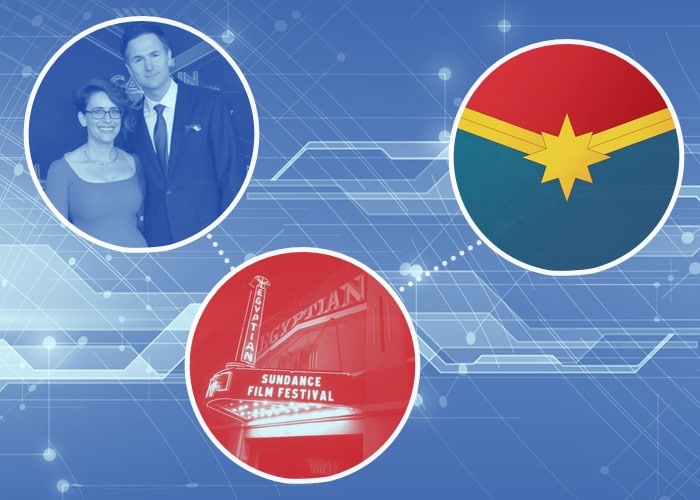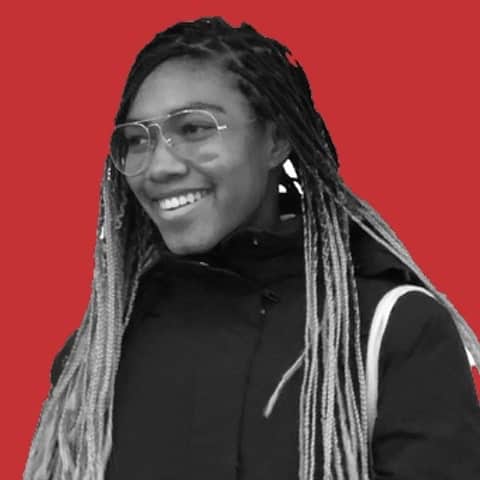
Anna Boden and Ryan Fleck have built up an impressive filmography, with dramas like Half Nelson and comedies like Mississippi Grind, sticking together through it all. Moving from camcorders to Sundance to blockbusters, Boden and Fleck haven risen the ranks of scale to get where they are now: the writers/directors behind Captain Marvel.
But before making it to big-time Marvel Studios filmmaking with hundreds of people, the pair was just that: the two of them. Fleck went to film school for fiction directing, and Boden was into documentary filmmaking. The two met and began making films, or as Boden recalls it in a 2015 IndieWire interview, “it was just the two of us kind of winging it.” Looking at the scale of Captain Marvel, it’s almost hard to imagine the pair making films as they once were, where, as Fleck describes, “literally, Anna had her little camcorder, and I had the boom, and we were making documentaries.”
From those tiny films, Boden and Fleck moved into their first feature film Half Nelson, with Fleck directing, Boden editing, and the two collaborating as co-writers. With the two of them writing, they have something of a coordinated disorganized system: “We’ll talk it out, we’ll outline some scenes, go as far as we can, separate, write separately, trade stuff, then go fine-tune it and polish it together,” Fleck said.
It wasn’t just the two of them for Half Nelson; their crew of two became a crew of upwards of 40 and their film became a Sundance hit. Adding this crew to their film was the beginning of a course toward working on bigger films employing more people. “That was an interesting process, just to relinquish that control and say, ‘Oh wow, it’s really nice to see people who are good at their jobs do them well,’” Fleck said. Half Nelson was still in the realm of small films, but it certainly left its mark, earning Ryan Gosling his first Oscar nomination and making the Boden-Fleck name known.
A few films later, the two found themselves in Toronto, where they were screening their new film Mississippi Grind at the festival with A24 as their distributor. “[We] are kind of embracing this new thing with A24 and really trusting these guys that they know what they’re doing because they’ve had such success in the past. They’ve been killing it,” Boden told IndieWire at the time. Even before major awards players like Moonlight and Lady Bird, A24 was killing it, and getting their film on the illustrious A24 slate was a huge step for the two.
As they were looking ahead to their next projects, Marvel was, by all accounts, nowhere on their radar. They were concerned with whether or not their next film would be shot digitally (“We managed to shoot on film for all four movies. So I don’t know when the next one comes around, whether we’ll be able to pull that off again,” Fleck said) and “throwing around ideas and working on some writing stuff,” for their next project according to Boden. Little did they know that Captain Marvel— with an Oscar-winning star like Brie Larson attached— was in their future.
With the big shift from indie A24 to big-budget, backed-by-Disney Marvel Studios, plenty of things were different in the making of this film. In this interview with Collider, Fleck discusses the shift in the level of collaboration necessary to make this film, saying “on our other movies, we’re used to working really with just the two of us and a very small group of maybe four or five other key collaborators. On this, it’s in the dozens if not the hundreds, because the movie is so massive.”
Boden particularly felt this spike in collaboration in the editors’ room, as her job changed with the inclusion of a team of editors. “We worked with editors on our movie for the first time. I’ve edited all our other films and [I’m] just learning what that collaboration can be like and how much they can add to it,” she said.
But, even with this huge shift in scale, some things stay the same. Their approach to writing as a pair is reminiscent of the coordinated disorganization they described doing for past films (with some added comic book lore). “The little kind of like tiny, little things that tie together, they were more like ways to fit a puzzle piece together, but they didn’t necessarily come at the beginning,” Fleck said in this /Film interview.
As writers/directors, they got to put not only their names but their fingerprints in the historic first-female-led MCU film. Little things, like the Blockbuster Carol Danvers crashes into, have the dual purpose of working narratively and bringing a little personal history in. “I mean, I worked in a Blockbuster in ’95, so that was really part of my memory,” Fleck said.
From being the only two crewmembers on their documentary shorts to helming a Marvel film marked by big names, big budgets, and a big crew, Boden and Fleck have come a long way in the film industry. With a $20.7 million Thursday night, it seems safe to say that Captain Marvel is going to be a smashing box office success.
As for Boden and Fleck, here’s hoping they continue to do what they do best: tell stories. “I think that the world of making movies and how movies get made has certainly changed and evolved over the years. So we’re just trying to keep up with it and keep telling our stories in whatever way we can, by hook or by crook,” Boden said.
Related Topics: anna boden, Brie Larson, Captain Marvel, half nelson, Marvel, Marvel Cinematic Universe, ryan fleck

